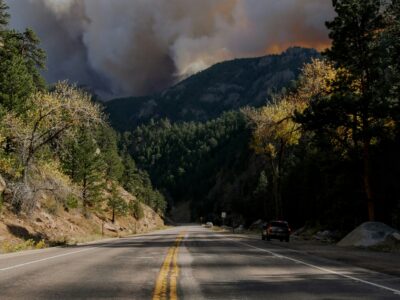Indirect Land Use Change and Biofuels

Biofuels are a promising way to reduce carbon emissions, but they have a potential side-effect: indirect land use change (ILUC). ILUC is more serious for some fuels than others, but it’s a possibility with any biofuel except perhaps algae grown in tanks in the desert.
The logic of ILUC seems undeniable: because demand for food is relatively inelastic, less U.S. food production means higher food and fiber prices, which in turn encourage production increases elsewhere in the world. It is also plausible to assume that at least some of those production increases would come in the form of increasing agricultural acreage by conversion of forests and grasslands, rather than increased yields on existing croplands. Although there is uncertainty abut the magnitude of ILUC, the existence of ILUC seems clear.
Should ILUC be taken into account in assessing biofuels? There is a clear economic argument for doing so. The purpose of fostering biofuels is to moderate global climate change, which means reducing global emissions of greenhouse gases. If a particular fuel fails to serve this function because of ILUC, we should not be encouraging it. Failing to take account of ILUC results in distorting investment in biofuels away from the fuels that will most efficiently and effectively meet the ultimate goal of climate mitigation.
The crux of the main counter-argument is that ILUC would be adequately controlled if there were a perfect global carbon tax (so that conversion of land would have to pay for the resulting impact on climate change). Why should American biofuels producers be punished because the world community has failed to create such a tax? Doesn’t it make “more sense to strive to enact policies that will make Brazil, or any other country, responsible for the GHG emissions associated with land-use changes in their countries through international agreement, rather than make agents in the United States, or elsewhere, responsible for the lack of action in Brazil”?
It is also an overstatement to say that consideration of ILUC results in punishing firms for conduct outside of their control. The only “punishment” is that they do not receive the benefit of special regulatory benefits aimed at promoting socially useful conduct (production of biofuels). It seems paradoxical to insist that we ought to provide those benefits even if we have good reason to believe that the resulting societal utility will not result.
The nature of climate change undermines the argument that U.S. policymakers should only worry about effects that they themselves can control. It is one thing to say that our government should take action to improve the welfare of our citizens, even if people elsewhere may be harmed because of the market effects of our action. It is perhaps at least not unreasonable to say that our government’s primary responsibility should be the care of its own citizens, not worrying that our actions will intensify economic pressures toward harmful behavior in other countries that lack similarly vigilant governments. But greenhouse gases have the same impact on climate – within the United States and elsewhere – regardless of where they are emitted. There is no benefit to Americans or anyone else through reducing emissions in the United States if those same emissions simply reappear elsewhere – at least not unless we have serious reasons for thinking that the United States emissions reductions will indirectly improve the prospects for global emissions limitations.
Another argument against worrying about ILUC is that doing so adds to the uncertainty surrounding investments in biofuels research and production, thereby hindering the long-term effort for major strides in reducing carbon. The desire to provide a stable environment for investment is legitimate. However, it seems peculiar to do so at the expense of making investments responsive to social costs. For instance, why would we want investors to be indifferent between developing fuels that are likely to produce ILUC versus those that are not?
Life would be simpler if we didn’t have to worry about ILUC. Unfortunately, that simplicity could result in misguided policy decisions that would make climate change worse rather than better.
Reader Comments
4 Replies to “Indirect Land Use Change and Biofuels”
Comments are closed.





Biofuels also mean significant increased water pollution, stress on or loss of top soil resources, loss of conservation lands and worsening conventional air pollution levels.
You can’t measure everything in terms of carbon. Some scientists, with good reason backed by alarming data, are just as concerned about the nitrogen cycle.
It’s all connected.
And yet we have too much corn. Each year some of the precious land we use to raise our food is taken to build roads and houses. Then what do American farmers do? They continue to produce more with less. Each year the American farmer produces more food with less land, water, fertilizer, insecticides, herbicides, fuel, pollution, erosion and labor. Farmers are producing food and fuel and if you look you will find that it is all good. You need to check out the data out of farm state universities, like those here in Minnesota, to see that all that I have said is true.
Food or fuel, agriculture is an energy problem, right? Energy in, energy out. Given that the basic input, solar energy, is more or less a constant and each year something is withdrawn from the native soil, where is the extra energy for this extra product coming from?
Businessmen, they drink my wine, plowmen dig my earth
None of them along the line, no what any of it is worth